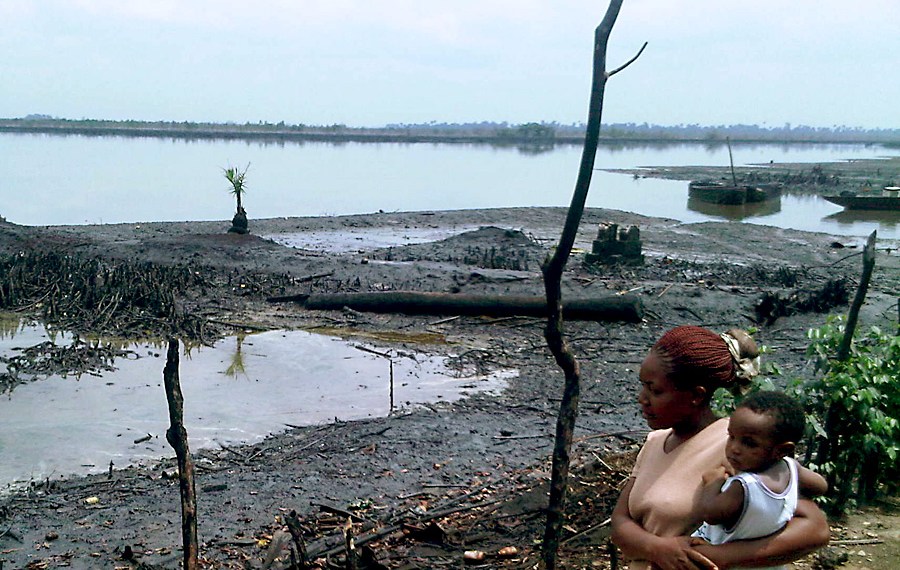In a landmark decision, the United Kingdom High Court has ruled that Shell and its former Nigerian subsidiary can be held legally responsible for decades of oil pollution that have devastated two communities in the Niger Delta, Rivers State. This ruling, delivered on Friday, signals a major turning point for environmental justice in Nigeria and could have ripple effects throughout West Africa and beyond.
Leigh Day, the law firm representing residents of Bille and Ogale communities, confirmed that the judgment means Shell may be held accountable for oil spills and environmental degradation stretching back many years. According to Leigh Day’s statement, “Shell, and its former Nigerian subsidiary, can be held liable for oil spills and leaks going back many years.”
The struggle for environmental cleanup and accountability began in 2015, when Bille and Ogale residents filed a suit in a UK High Court. These communities, located deep in the Niger Delta, allege systematic devastation of their ecosystem as a result of frequent oil spills—an issue that Nigeria has grappled with for decades.
Residents claim the oil spills, which number more than a hundred, rendered their lands infertile, destroyed fish populations, and left many unable to farm or fish—their traditional sources of income. “People in Ogale are dying; Shell needs to bring a remedy,” stated King Bebe Okpabi, leader of Ogale community, in reaction to the court’s judgment.
Shell, a global energy giant, had tried to halt the case using multiple technical and legal arguments. However, after a four-week “preliminary issues” trial from February to March 2025, presiding Justice Mrs. Justice May rejected Shell’s efforts to restrict the scope of the upcoming full trial, which is scheduled for 2027. The judge’s findings are significant, shaping not only this litigation but the broader landscape of environmental claims against multinational companies.
A key argument from Shell asserted there was a strict five-year limit for bringing claims, which would bar residents from seeking justice for older spills, even if clean-up efforts had not been sufficient. Mrs. Justice May rejected this argument, ruling that the communities have a right to seek legal redress for oil spills occurring more than five years ago, particularly in cases where Shell had failed to clean up properly.
She also noted that ongoing pollution could be classified as an ongoing breach of Shell’s obligations, potentially giving rise to new claims for every single day the contamination remains. The ruling further stated an oil spill could constitute trespass—in legal terms, a “new cause of action will arise each day that oil remains on a claimant’s land.” Such provisions dramatically widen the window for communities seeking justice for historic pollution.
Legal experts in Nigeria and throughout Africa have praised the decision as a groundbreaking precedent. For instance, Lagos-based environmental lawyer Chidi Eze noted, “This case moves the goalposts for accountability—not just for Shell, but for any multinational operating in African countries. It could open doors for similar cases across the continent.”
The court distinguished this claim from a previous major case—Jalla v Shell International Trading and Shipping Vo Ltd [2024] AC 595—where the UK Supreme Court appeared to place strict limits on legacy pollution cases. Mrs. Justice May emphasized that where polluters have left contamination on residents’ land, the door remains open to hold them liable, even after many years.
The communities also argued that Shell’s pollution had breached their constitutional rights under both the Nigerian constitution and the African Charter on Human and Peoples’ Rights. The judge found oil pollution could potentially engage the right to life within the Nigerian Constitution, recognizing growing global awareness of the severe impacts of environmental harm. However, she determined decisions regarding the interpretation of the Nigerian constitution should be left to Nigerian courts.
This highlights a critical point: while British courts can hold multinational corporations to account using English law, ultimate questions about constitutional rights and human rights violations due to pollution will be left for Nigeria’s judiciary to decide. The long-term impact of this could be significant, setting legal precedent and prompting renewed debate within Nigeria’s courts and legislature.
According to the statement from Leigh Day, it is now up to the Nigerian courts to decide whether an oil company like Shell can be liable under the Nigerian constitution for serious environmental pollution. This question is likely to shape the trajectory of environmental law and human rights litigation in Nigeria for years to come.
Reacting to the decision, King Bebe Okpabi of Ogale said: “It has been 10 years now since we started this case, we hope that now Shell will stop these shenanigans and sit down with us to sort this out… We thank the judicial system of the UK for this judgment.” Such sentiments reflect the frustration and determination of many Niger Delta residents, some of whom have spent entire lifetimes seeking redress for pollution and loss of livelihood.
Leigh Day international partner Matthew Renshaw commented on the significance of the judgment: “Shell’s attempts to knock out or restrict these claims have been comprehensively rebuffed. This outcome opens the door to Shell being held responsible for their legacy pollution as well as their negligence in failing to take reasonable steps to prevent pollution from oil theft or local refining. This sets an important new legal precedent in environmental claims against multinational corporations.”
Looking ahead, the trial against Shell and its former Nigerian subsidiary—potentially including issues of whether their staff were complicit in illegal activities—will proceed in early 2027. Leigh Day emphasized that their clients have repeatedly stated their main aim is for Shell to clean up the pollution and compensate them for their losses, rather than simply seeking punishment or public shaming.
The legal journey for Bille and Ogale spans nearly a decade. Many residents have reportedly died waiting for justice as the case moved slowly through courts. The first major breakthrough arrived in 2021, when the UK Supreme Court ruled that Shell’s parent company could be legally liable for the actions of its Nigerian subsidiary. But legal delays and technical wrangling kept the communities from full redress until now.
The extent of environmental damage in the Niger Delta cannot be overstated. The Bille and Ogale communities say that over 100 oil spills have poisoned farmland, polluted rivers, and contaminated their water supply. The outcome, they allege, has left some areas virtually uninhabitable, jeopardizing the health, economic stability, and future of thousands of Nigerians.
Shell has long been criticized for its activities in the Niger Delta, and protests, lawsuits, and international campaigns have followed years of documented oil spills. The company has pointed out that widespread sabotage, oil theft, and illegal refining contribute to the region’s pollution problem. However, many environmental groups and locals argue that Shell’s maintenance lapses, slow responses to spills, and insufficient remediation have made the situation worse.
For Nigerians, Ghanaians, and others across West Africa, this court decision offers both hope and an important reminder about the power of collective action and persistence. As climate change, resource extraction, and industrial accidents increasingly threaten livelihoods, legal victories like this one can encourage more robust enforcement, reforms, and responsible behaviour by multinational corporations.
Observers also note that this ruling may inspire similar actions across Africa, where communities impacted by extractive industries in countries like Ghana, Angola, and the Democratic Republic of Congo face comparable struggles. The potential for new legal strategies could shift the power balance toward affected residents demanding environmental restoration and compensation.
Despite this legal win, challenges remain, from the lengthy judicial process to the question of how cleanup and compensation will be enforced in practical terms—especially as Shell has already sold its onshore assets in Nigeria. Critics warn that unless mechanisms for compliance are embedded in both UK and Nigerian law, victories in court could be symbolic rather than transformative.
The world will now be watching to see how Shell, government regulators, and the Nigerian judiciary respond to this precedent-setting ruling. Will it catalyze environmental restoration, stricter oversight, or greater corporate accountability throughout West Africa and the wider world? Or, as some fear, will communities still face delays and disappointment if enforcement falls short?
As Nigeria continues to wrestle with the impacts of oil extraction and pollution, the story of Bille and Ogale serves as a rallying cry for environmental justice. How do you think this case will impact other communities suffering from oil pollution in the Niger Delta or elsewhere in Africa? Share your thoughts in the comments and follow us for in-depth updates on this crucial story.
Have a tip, opinion, or experience to share on environmental justice, community struggles, or other news stories in Nigeria and West Africa? We want to hear from you! Email us at story@nowahalazone.com to get your story featured or to discuss submissions and story sales.
For general support, reach out at support@nowahalazone.com.
Join the conversation—let us know what you think and share your own community’s perspective in the comments!
Stay connected and follow us for more verified news and local stories on Facebook, X (Twitter), and Instagram.










